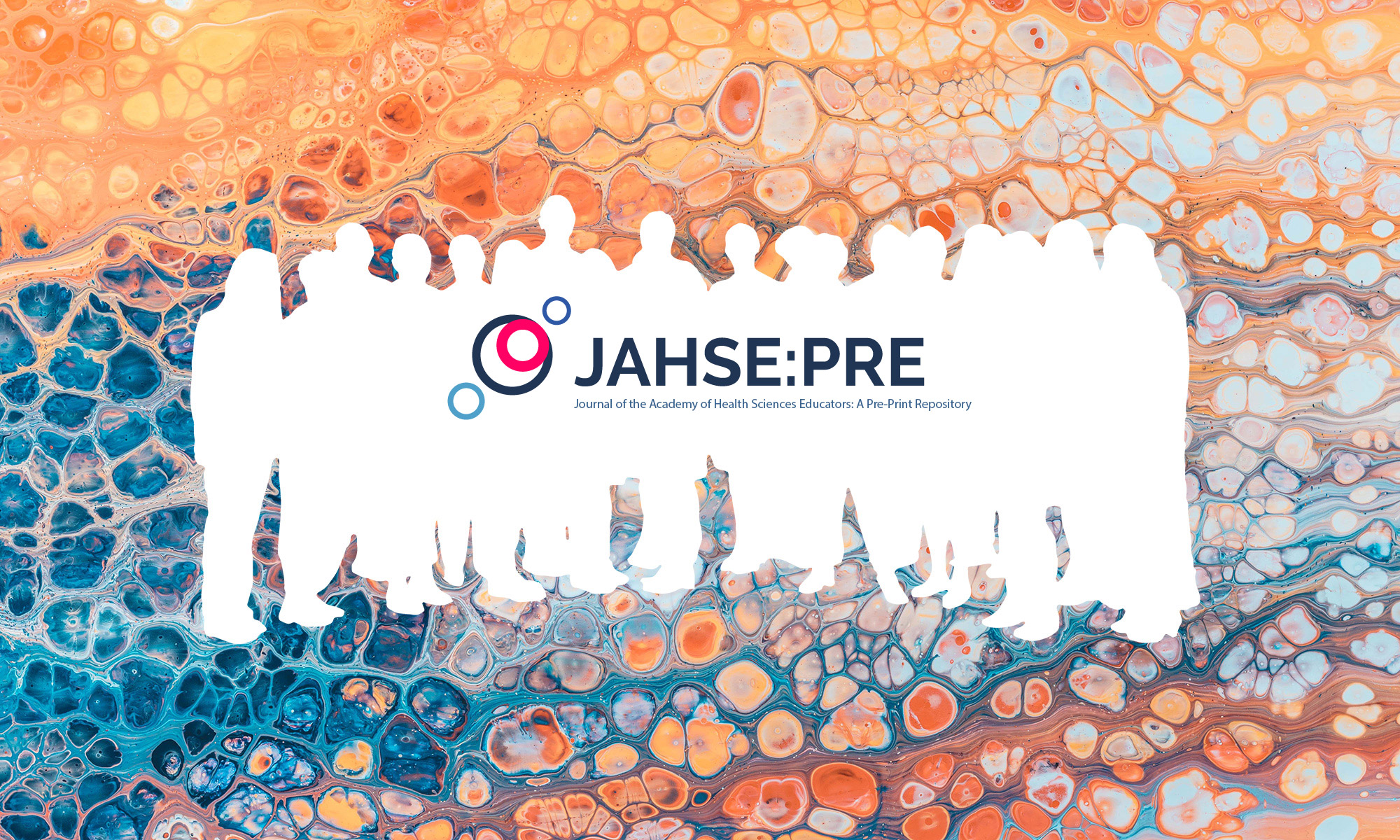This letter was submitted to the Editor of Perspectives in Medical Education.
Dear Editor,
In their 2018 article, Maggio et al.[1]highlight the benefits of preprinting manuscripts in preprint repositories, which include early discovery, access, and increased opportunities for feedback. Preprinting occurs when a manuscript is hosted in a web-based pre-repository prior to formal submission to a journal. However, our experience over the past 18 months reveals a great deal of confusion about preprinting and a lack of universal acceptance.
In 2020,we implemented a program designed to help faculty new to educational scholarship enhance their ability to disseminate their work. This program includes both peer coaches and a web-based preprint repository, known as the Journal of the Academy of Health Science Educators: A Preprint Repository, or JAHSE:PRE (https://jahse.med.utah.edu/). Indeed, we have found that peer coaching while preparing a manuscript followed by the chance to preprint that manuscript could be particularly helpful for early career scholars or faculty new to education scholarship[2].
While publishers in multiple fields are adopting preprinting [2], we have discovered a great deal of confusion about the pros and cons of preprinting as well as disparity in publishers’ policies regarding preprinting in the field of health professions education. In seeking to resolve this confusion, we sought to document preprint policies at 74 journals within health professions education (e.g. nursing, medicine,pharmacy, dentistry, rehabilitation sciences, nutrition). We culled preprint policies for 33 (45%) journals using journal websites or the List of academic publishers by preprint policy in Wikipedia)[3]. We then obtained information from email solicitations for an additional 27 (36%), leaving us without informationfor14 (19%). Of the 60 journals for which we have information, 45(75%) will review/accept preprinted manuscripts; 9 (15%) do not, and6 (10%) are unclear or make decisions on a case-by-case basis. No wonder there is confusion.
We encourage our colleagues across the health professions to join our call to eliminate this confusion by encouraging all of our journals in the field of health professions education to support and encourage preprinting. The value of preprinting has only become more important during the COVID-19 pandemic[4]. Being able to preprint scholarship prior to formal submission enhances formative review and revision, augments the benefits of peer coaching, and promotes higher quality publications. Preprinting also makes work available to others much more quickly, which can enhance collaboration and uptake of new ideas without compromising the eventual copyright of the final published product.
Sincerely,
Members of the JAHSE:Pre Editorial Board
Nena Schvaneveldt, Nancy Lombardo, Eccles Health Sciences Library
Sara Hart, Kara Dassel, Rebecca Wilson, College of Nursing
Linda Tyler, College of Pharmacy
Staci McIntosh, College of Health
Candace Chow, Kathryn Moore, Janet Lindsley, Randy Jensen, Joanne Rolls, Angelo Giardino, Tim Farrell, Virginia Valentin, Boyd Richards, School of Medicine
Sara Lamb, Vice Dean for Education, School of Medicine
Wayne Samuelson, Dean of Medical Education, School of Medicine
Wendy Hobson-Rohrer, Associate Vice President for Health Sciences Education, UHealth
Return to Table of Contents: Reigniting your Educational Scholarship: 2021 Special Issue
Letter Calling for Pre-Printing by Nena Schvaneveldt, MSLIS, AHIP, Nancy Lombardo, MLS, Sara Hart, PhD, Kara Dassel, PhD, Rebecca Wilson, PHD, RN, Linda Tyler, PharmD, Joanne Rolls, MPAS, PA-C, MEHP, Angelo Giardino, MD, PhD, MPH, FAAP, Timothy W. Farrell, MD, AGSF, Sara Lamb, MD, Wayne Samuelson, MD & Wendy L. Hobson-Rohrer, MD